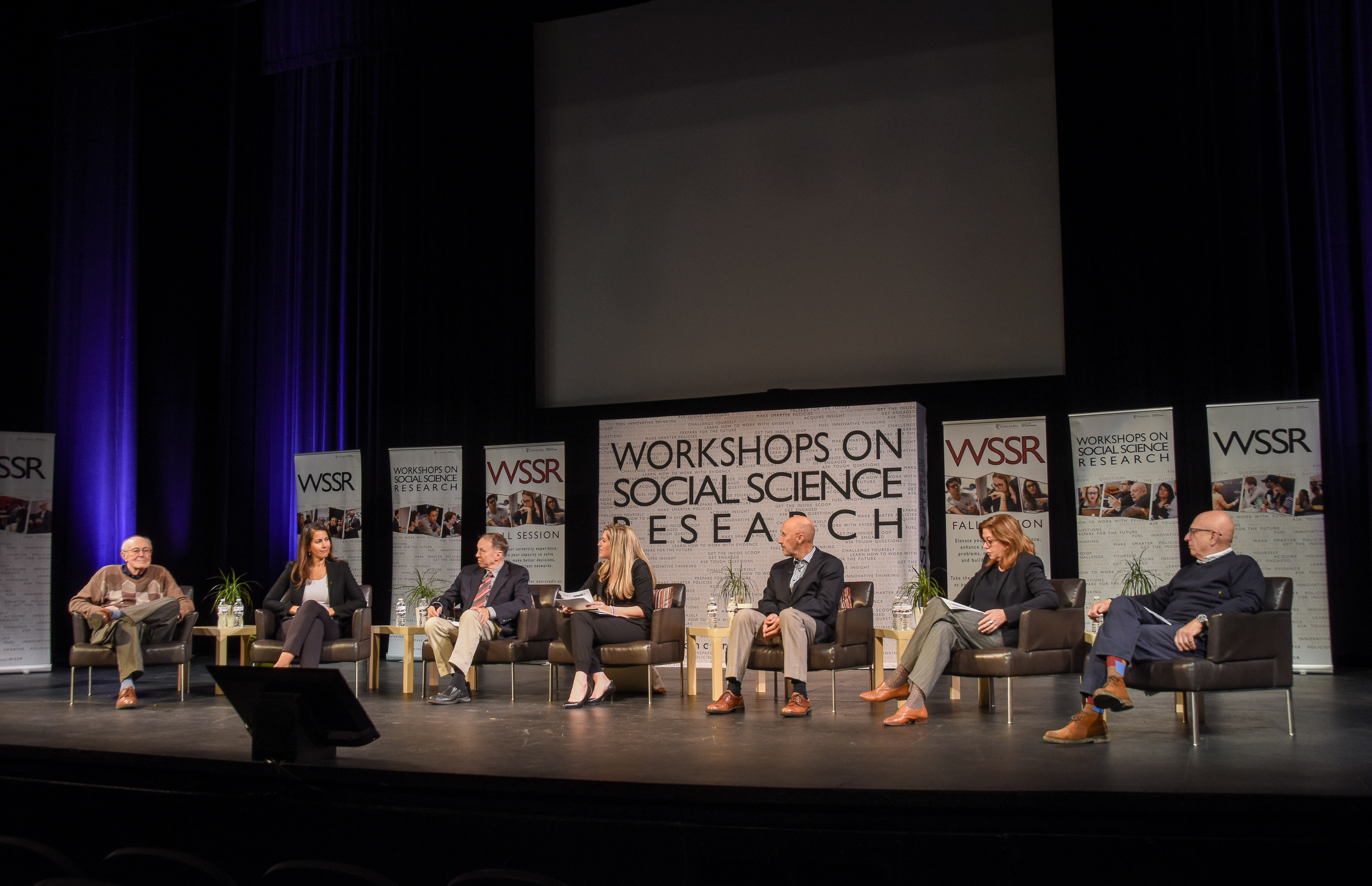On Oct. 24, Concordia organized a conference where six political analysts discussed the outcome of the 2019 election and how we got here.
Three days after election night, six panelists took the D.B. Clarke theatre stage one after another to analyze and debate key aspects of the campaign. The panelists were Harold Clarke, Rachel Curran, Lawrence LeDuc, Kevin Page, Carole McNeil and Jean-Pierre Kingsley.
While most polls put Andrew Scheer ahead of Justin Trudeau, it might have come as a surprise that the Conservatives did not do as well as anticipated. To truly understand the outcome of the election, Clarke argued that people need to look at the three main drivers of electoral choice.
Firstly, social issues such as same-sex marriage and abortion usually get a lot of media attention. But, it is actually how the political party performs, in terms of what Clarke referred to as valence issues, that will drive the voter’s final decision.
“These are issues that everybody agrees on the goal,” said Clarke, a professor at the University of Texas in Dallas and veteran of Canadian elections studies. “Issues such as the economy, or healthcare, education, security, and now climate change as well. It’s hard to find people who want bad healthcare and so on.”
Accordingly, the fact that the vast majority of people want a healthy economy strongly played in favour of Trudeau, explained Clarke. Indeed, the latest Statistics Canada survey, released on Oct.11, showed that today’s economy held a steady 5.5 per cent unemployment rate, the lowest in 40 years.
“It’s a big plus. Prosperity is a big plus,” Clarke said.
The second driver in the electoral choice, which explains surprises such as the NDP losing seats, is partisanship. Partisanship in Canada tends to be quite fluid and people are more than willing to leave their favoured party. According to Clarke, this creates situations where there are always possibilities for last-minute, large scale change.
Last, the third electoral driver proposed by Clarke is the leader image, which he believes played a major part in this election.
“Scheer simply didn’t make the impression he needed to make to win,” Clarke said.
Theme of the election
While affordability ended up being the main theme of this year’s election, issues put forward by the parties were somehow irrelevant, argued Curran, Former Director of Policy to Prime Minister Stephen Harper.
“The measures [the political parties] were offering were very cynical and very shallow vote line efforts, at best,” Curran said. “What the parties ignored was the much bigger issues that we need to grapple and resolve as a country.”
As a matter of fact, this can explain the low voter turnout of 65.95 per cent. None of the leaders actually addressed the true underlying causes of issues such as why some Indigenous communities still have no access to clean water or why cellphone charges are extortionate, Curran pointed out.
Curran also believes that the inability and, perhaps even more, unwillingness of the parties to take a clear stance on issues such as the climate crisis, led to a problematic outcome; deep, regional division.
Canada has actually been sending various, very divided messages which resulted in broken national cohesion on election night.
“How do we reconcile resource development with environmental protection if we are in the business of fossil fuel, how do we address climate change in a credible way?” asked Curran. “And if we are not in the business, how do we fill the revenue hole and replace the hundreds of thousands of high paying jobs linked in the energy sector, particularly in Western Canada?”
Accordingly, we saw how cacophonic broadcasted debates were. It was arguably more of a who-can-talk-the-loudest contest than discussions on meaningful issues. It led to questions raised by a lot of media outlets as to whether the broadcasted debates are to be changed and how much impact they really have.
Jagmeet Singh was almost unanimously declared the winner after the CBC debate on Oct. 7. Yet, the NDP only won 24 seats last Monday night.
“I think we should, when evaluating the debates in the electoral campaign, avoid separating them from all the other things that we talked about in the context of the election,” said Leduc, professor at the University of Toronto. “Because even if Singh benefited from the debates, he only benefited from them being one of the several elements in the campaign.”
Leduc and Clarke both argued that the current form of debates won’t be seen again. A single debate between the two leaders of the main parties remains the innovation argued as the best.
Going Forward
Historically, minority governments never lasted more than two years. And before the evening was over, the panelists all took turns, gambling the durability of this one.
Interestingly, Clarke pointed out that Scheer might not be around that long, and the process of replacing him is going to take a while. Curran gambled that it will last at least two years.
Therefore, Trudeau is actually in a good position to hold power for a little while. Yet, losing 27 seats showed that his government needs to do better with Canadian issues.
“Climate change, healthcare and going forward with affordability, these are going to be the defining issues going ahead,” concluded CBC journalist McNeil.
Feature photo by Cecilia Piga
